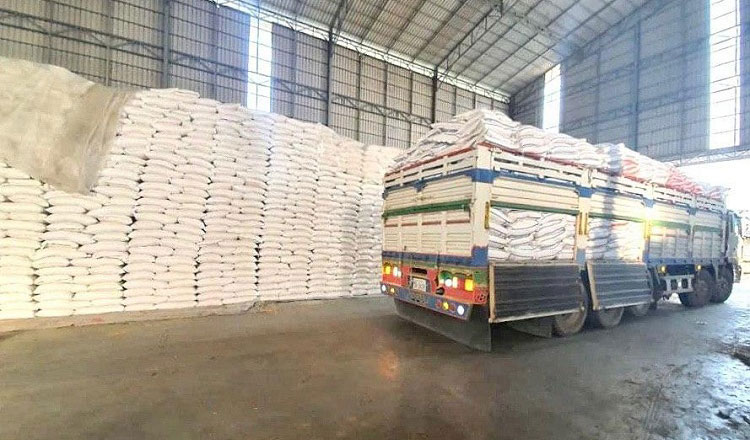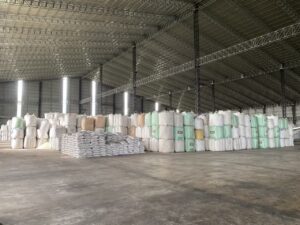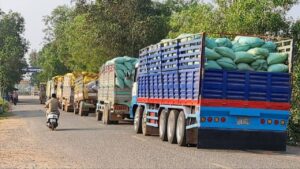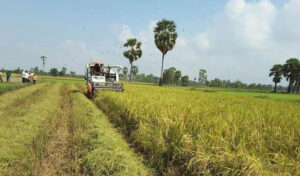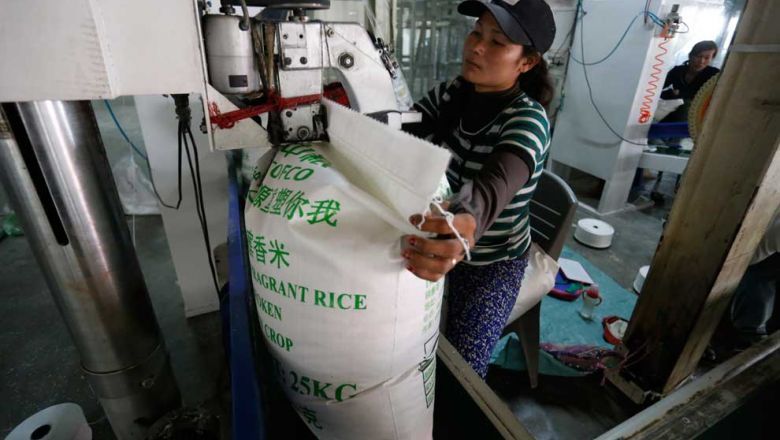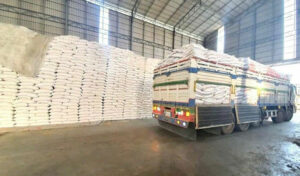Logistics group calls on gov’t to ease restrictions to ensure deliveries
As lockdowns strain businesses trying to operate under restrictions and fears of food insecurity loom, the Cambodia Logistics Association (CLA) is appealing for government intervention to help alleviate the strain on enterprises trying to get their goods to the marketplace.
In a statement released on Tuesday evening and reviewed by Khmer Times, the CLA said that despite the logistics sector being named an essential service, “disruptions have caused most of our business activities to be temporarily suspended”.
“Obstacles currently being encountered are companies with offices in ‘Red Zones’ needing to be temporarily closed. Almost 100 percent of staff with travel permits are not allowed to drive to work by authorities. A large [amount] of transportation is restricted or banned. The activities of customs, which is the most necessary component to complete customs clearance, is banned as well,” the CLA said.
The CLA appealed to authorities for traffic permits for all types of heavy-duty trucks travelling in and out of lockdown areas from 8pm to 5am to be respected, that additional travel permits be distributed to truck drivers and an additional 25 percent of traffic permits be distributed to office staff so that they can travel in and out of offices.
“Some companies in our sector have fewer than 10 employees and most have fewer than 100, which cannot be limited to just 2 percent of operations,” the CLA noted.
“During this time, heavy transportation through Phnom Penh is impossible. Not only [for] us, but also other sectors are facing the same problem,” said Lun Yeng, secretary-general for the Camboda Rice Federation (CRF).
Yeng did stress that the CRF had supplied approximately 1,000 tonnes of milled rice, saying “We can guarantee the supply of milled rice in both the domestic and foreign markets this year.”
Vu Duong, a vegetable vendor in the capital’s Toul Tom Poung district, said she has been forced to raise prices because it had become increasingly difficult to source produce from the countryside.
Normally, her fruit and vegetables travel from the outskirts of Phnom Penh or from as far as Vietnam. However, the lockdowns have resulted in her being unable to serve her regular customers.
“Every day I sell out of tomatoes because there are not enough coming. I used to have three different types of fish for sale but now there is only one. I want to say that I am sorry to my customers, but it is more expensive getting food delivered to me these days,” she said.
Tim Squires, managing director for Ostra Fine Foods, told Khmer Times that his firm has intensified its focus on supermarkets including Aeon, Lucky and Super Duper as restaurants and hotels have been forced to suspend dine-in services.
Ostra Fine Foods specialises in importing premium seafood for local clientele. It operates two segments – the dine-in Oyster Bars and its wholesale business supplying supermarkets, restaurants and hotels in Phnom Penh and Siem Reap.
Squires’ company usually imports seafood directly from the US, Canada and Europe weekly. He said that uncertainty whether customs clearance agents will be able to conduct their duties, coupled with reduced demand, has led to a “perfect storm preventing the importation of goods”.
“Cambodia is heavily reliant on imported goods across all food sectors. if the lockdown continues, Cambodia’s ability to feed itself will be severely tested,” Squires said.
“Because the community is unable to travel between provinces and the Vietnamese border is firmly closed, the availability of fresh produce such as seafood is currently very low also. This will become increasingly important because wholesale suppliers cannot meet the demand of supermarkets,” he added.
Squires also shares the CLA’s plight, noting that Ostra Fine Foods is forced to operate with a skeleton staff because the majority of his workforce is unable to reach the workplace to support day-to-day operations. Khmer Times

